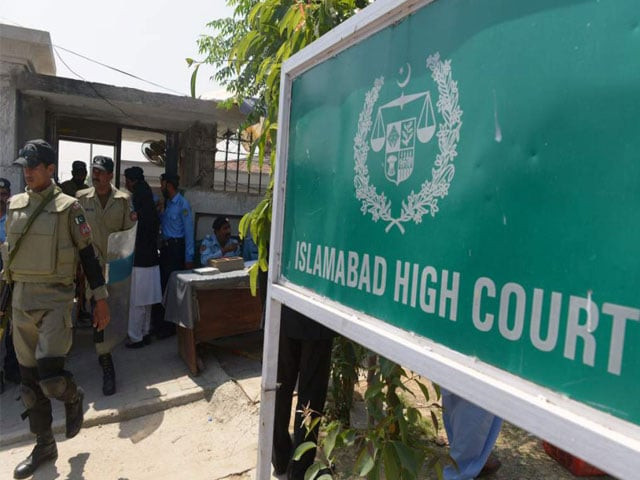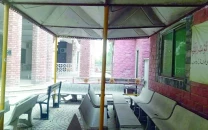IHC orders enquiry against City AC, Aabpara SHO
Justice Minallah suspends AC’s judicial powers, orders cases against men who assaulted petitioners

Justice Minallah suspends AC’s judicial powers, orders cases against men who assaulted petitioners. PHOTO: FILE
Justice Athar Minallah of the Islamabad High Court (IHC) has further ordered an inquiry to determine the role and liability of the City Assistant Commissioner (AC) Lieutenant (retired) Saad Bin Asad, and Aabpara SHO Khalid Awan, since the “respondents have recklessly deviated from their fiduciary obligations”.
The judge subsequently suspended judicial powers granted to the AC.
Alarmingly, the Justice Minallah noted in the order, “the copies of FIRs submitted by the respondent no. 1 [Aabpara SHO] indicate that one of the alleged perpetrators is a close relative of a senior retired police officer and this raises serious concerns.”
The evicted residents, Asma Khursheed and Baber Ali, had filed a petition in the IHC through their counsel Raheema Khan against the AC’s December 7 order and a police report, known as Qalandra, allegedly backing the AC’s orders.
Raheema contended that one of the perpetrators behind the illegal eviction, Tahir Rehman Bega, was the son-in-law of former Islamabad inspector general of police Bin Yamin. Bega, the lawyer argued, along with others had attacked the petitioner’s house on December 3.

The property has been disputed between Asma and her brother Naveed Khursheed, who currently lives in Norway but has continued litigation over the property through his attorney Ibrar Hussain.
Monday’s court order revealed that Hussain along with 25 to 30 accomplices, equipped with firearms, had forcibly tried to forcibly evict the petitioners on December 3. Justice Minallah noted that the information presented in the case was sufficient for the state authority to be set in motion to apprehend the perpetrators who have allegedly committed serious cognizable offences while simultaneously protecting and safeguarding the fundamental rights of the petitioners.
“The record and proceedings before this court in the petition show that in fact, the opposite took place,” he stated,
The court observed that the property is located in the heart of the capital, not a remote corner where the writ of the state does not exist, adding that accountability is the most important pillar of good governance.
“The conduct of the respondents and the resultant harm caused to the petitioners cannot go unnoticed,” Justice Minallah stated. “Their role and liability, therefore, needs to be probed.” The court has directed Islamabad’s Inspector General of Police to ensure that criminal cases are registered in the December 3 incident and are investigated by a senior officer “fairly, impartially and without fear or favour.”
He has also directed to conduct an enquiry through a senior officer to probe the role and conduct of Awan. Additionally, the Islamabad Capital Territory’s Chief Commissioner has been directed to conduct an enquiry to ascertain the role and conduct of AC Asad which led to serious violations of the fundamental rights of petitioners.
“Chief Commissioner shall also ensure that till the completion of the enquiry the respondent no 2 [Asad] is restrained from exercising judicial powers,” the court ordered.
The top officials of the administration and police — who had been specifically ordered to appear in person before the court on Monday to hear the judgment —were directed to conclude their enquiry within 30 days and submit a report before the IHC registrar.
Moreover, the chief commissioner has been ordered to ensure that the law relating to appearance through the Advocate General Islamabad, as enunciated by the Supreme Court, is followed in letter and spirit. This direction came after Asad had hired a private counsel to represent himself instead of being represented by the Islamabad AG.
“It is the obligation of the state to safeguard and protect the security, life and property of every citizen… dignity and privacy of home has been declared as an inviolable fundamental right by the makers of the Constitution under Article 14,” Justice Minallah stated in the order.
In the case, the petitioners were “illegally dispossessed by public functionaries who are otherwise entrusted with the duty by the State to protect and safeguard the rights of the citizens,” he said.
Subsequently, the court has declared that sealing off the property and all the proceedings relating thereto were illegal, without lawful authority and jurisdiction.
Published in The Express Tribune, December 19th, 2017.



















COMMENTS
Comments are moderated and generally will be posted if they are on-topic and not abusive.
For more information, please see our Comments FAQ